Have you ever been to the UK on holiday and wished you didn’t have to go home?
While it’s all fun and games when you’re riding in a shiny red bus and trying to get the guards at Buckingham Palace to notice your existence, relocating here is a bit more complicated – but it’s more than worth it.
We’ve broken down everything you need to know about working as a vet in the UK–including getting registered to practise here, sorting out finances, applying for jobs, and why so many vets are making the move.
Why come to the UK?
- It’s a great place to be a vet. Vets are very well respected here, and locum pay rates in particular are some of the highest in the world.
- Everyone will want to hire you. Candidates for vet jobs are in huge demand, so you’ll have a wealth of opportunities to grow your career.
- Our culture is world famous. You’ll experience some of the greatest art, architecture, music, sports and theatre in the world. England, Northern Ireland, Scotland and Wales all have their own culture and traditions to discover.
- The UK embraces diversity and is truly multicultural. London is the world’s most culturally diverse city, with over 300 languages spoken.
- Healthcare is free. We’re proud of our world-leading National Health Service (NHS), and once you’re a resident, you’ll have full access to it.
- The UK has some of the world’s top schools and universities, many of which are centuries old with enchanting architecture and traditions. If you’re looking to continue your studies, it would be hard to find a better place to do it.
- The scenery is beautiful. From snow-capped mountains and lochs to green hills and the white cliffs of Dover, it’s hard not to fall in love with the British countryside.
- The weather really isn’t that bad! British weather, like British people, likes to grumble a bit but is rarely dramatic. In most parts of the UK, it’s an atmospheric patchwork of sunshine and showers, which makes for incredibly green fields and lots of rainbows.
- It’s a great base from which to explore Europe. With several international airports, ferry ports and the cross-channel Eurostar train, it’s easy and often cheap to travel to nearby countries.
- British people are renowned for their hospitality and unique sense of humour. Many of our international vets say the one thing they love most about being here is the people.
The steps to working as a vet in the UK
- Register with the RCVS
The Royal College of Veterinary Surgeons is the regulatory body for vets in the UK. Only RCVS-registered vets can practise here.
To get registered, you’ll usually need to provide your personal details, proof of your degree, and a letter of good standing, which is a letter from the regulatory body in your home country confirming that you’re registered with them and that you’ve never been the subject of any disciplinary enquiries. You can find out more on the RCVS website here.
If your degree isn’t on the RCVS’ list of recognised qualifications, you’ll also need to pass their Statutory Examination for Membership. If you plan to sit the exam, you’ll need to take an English test first–either the International English Language Testing System (IELTS) or the Occupational English Test (OET). The OET tends to be preferred by healthcare professionals.
- Apply for jobs
Once you’re registered, it’s time to find a job! At NSV, we have a range of exclusive opportunities that may be suitable for you, or you can get in touch if you need a role that is specific to your requirements in the UK.
And the best part is? We’re 100% free!
This takes much of the hard work out of finding a job and gives you the benefit of our expert insider knowledge of the local jobs market and advice on moving to the UK from abroad.
To make the best start, make sure you know how to write a vet CV and cover letter in the UK.
3. Get your visa
If you don’t already have the right to work in the UK, you’ll need to apply for a skilled worker visa. You’ll need to have found a job before you do this. All the more reason to get in touch with us as soon as possible!
Alternatively, if you’re not a UK citizen but you’ve graduated from a UK vet school while here on a tier 4 visa, you can apply for a graduate visa.
- Find a place to live
There are lots of resources to help you find your home from home in the UK. These include:
- Property websites like Rightmove, Zoopla and Spareroom
- Facebook groups like Vet BnB
- Homes4Vets
- Gumtree
- Airbnb if you need somewhere quickly for the short term
Do check out the home you’re renting before you sign anything or pay anything–if you can’t be there in person, at least make sure you’ve seen plenty of photos or video of the place.
- Organise your finances
The first step in sorting out your UK finances is to convert your currency to pounds. Try Transferwise or Revolut to avoid getting hit with high conversion fees.
You’ll probably want a UK bank account, but most banks ask for proof of address before you open an account, so wait until you’ve arranged a place to live. In the meantime, Transferwise and Revolut can both provide you with an online bank account and a debit card.
- Get a National Insurance (NI) number
Working for a UK employer means paying UK tax and National Insurance, which means you need to apply for an NI number. Again, make sure you have a place to live here first, as you’ll need to give your address. You can start work before you have an NI number, but do apply as soon as you can.
If you’re employed directly, your NI number will allow your tax and NI contributions to come out of your salary automatically, so you won’t have to worry about it. If you’re working as a locum, you’ll need to do your own taxes through Self-Assessment, which can get complicated–unless you find locum work through a recruitment agency, which will handle this for you.
If all this sounds daunting to you, you’re not alone–and you’ve come to the right place. Feeling some trepidation about an international move is normal, but we’re experts in making the process as smooth as possible. We’ve helped many international vets make the move to the UK, so we can steer you around the pitfalls, cut through the confusion, and help you find your ideal role and settle in. We’ll be right by your side through each of these steps and beyond.
If you’d like free expert advice on any aspect of moving here, living here, or working here, get in touch today and we’ll be delighted to help.








